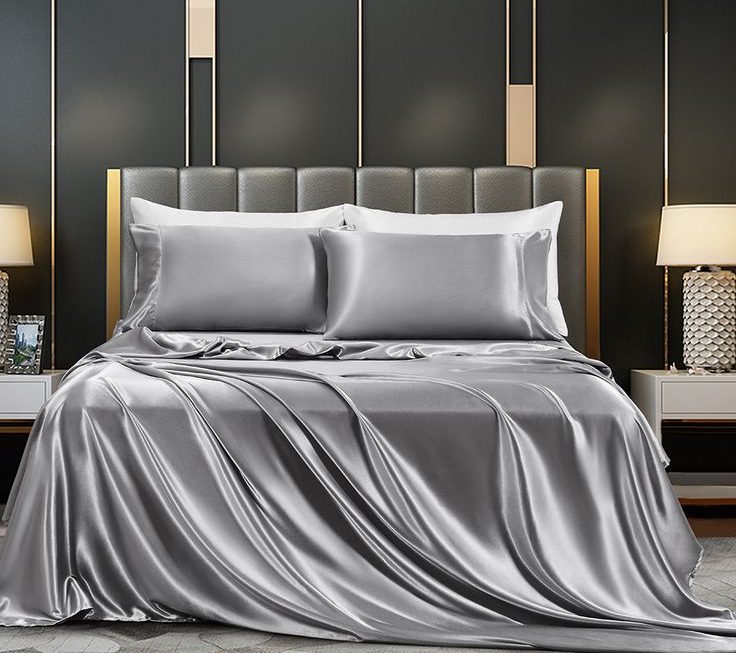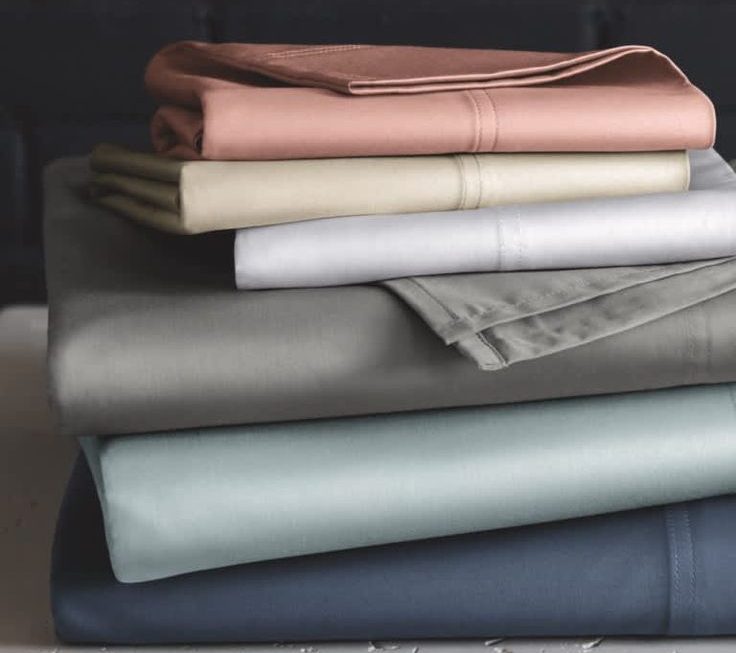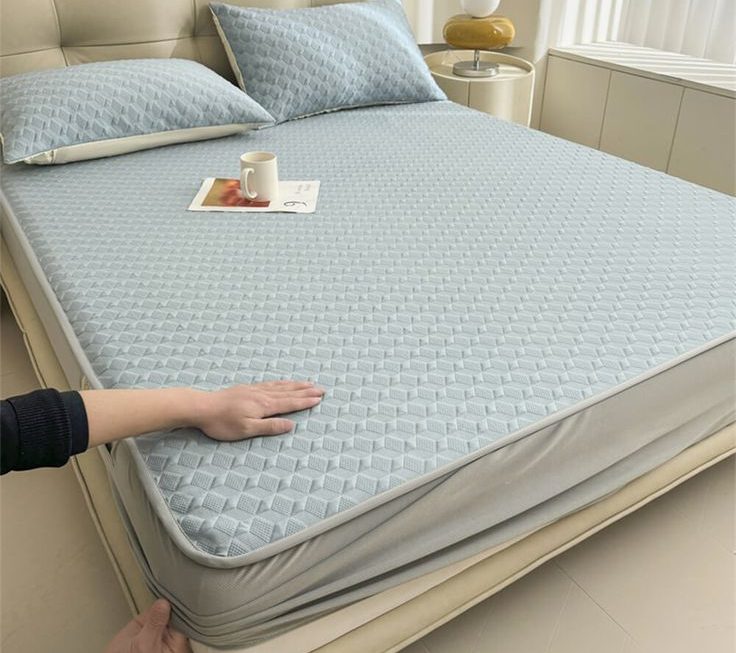The Lifecycle of Fleas in Carpets
Understanding the lifecycle of carpet fleas is crucial in fighting them. It has four stages: egg, larva, pupa, and adult. Fleas lay eggs on a host like a pet. These eggs fall off into the carpet. The eggs hatch into larvae which bury into the carpet fibers. They feed on organic matter and adult flea waste. In time, the larvae spin cocoons and become pupae. These pupae rest until a host is nearby. Then, they emerge as adults ready to feed and start the cycle again.
Fleas thrive in carpets due to the warm, hidden environment. They can live for a few days to several months. Without a host, a flea’s life is shorter, but in favorable conditions, they can survive longer. Flea control must target all lifecycle stages. This means addressing both the live fleas and their developing forms in the carpet.
Knowing how long fleas can live on carpet helps in planning treatments. Regular vacuuming can remove eggs and larvae. It also encourages pupae to emerge prematurely. This makes it easier to kill them before they develop into reproductive adults. Effective treatment calls for a multi-stage approach. It includes vacuuming, washing fabrics, and if necessary, chemical or natural treatments.
Identifying a Flea Infestation in Your Home
Detecting a flea infestation quickly is key to preventing a large-scale problem. Watch for these signs:
Bites and Itching
If you find small, itchy bites on your skin, fleas might be lurking. Fleas usually target lower legs.
Flea Droppings
Also known as “flea dirt”, look for tiny black specks in carpets, rugs, or beds.
Sightings of Adult Fleas
Fleas are small and dark. You may spot them hopping on furniture or floors.
Eggs and Larvae
Flea eggs and larvae are harder to spot but check dark, warm places closely.
Pet Scratching
Even without pets, notice if visitors’ pets scratch a lot at your home.
A proactive approach to spotting these signs can lead to quicker resolution. Combine regular checks with thorough cleaning to beat fleas at their own game.

Can Fleas Thrive Without Pets?
It’s a common misconception that fleas need pets to survive. In fact, these persistent pests can maintain their lifecycle even in homes without animal hosts. Here’s what you need to understand about fleas’ ability to thrive without pets around:
Fleas on Human Blood
Fleas adapt and will feed on human blood if animal hosts are unavailable. Bites typically occur on lower legs and ankles when we unknowingly pass by their hiding spots.
Fleas in Your Home Environment
Your home offers many cozy spots for fleas. Carpets, bedding, and upholstered furniture make ideal breeding grounds for these insects.
External Flea Introductions
Fleas can hitch rides on humans and items. They may come in from the yard or a friend’s pet infested home. Once inside, they settle into carpets and upholstery.
Flea Lifespan Without Pets
Without pets, fleas live shorter lives. Yet, in ideal conditions, they can last several months. They lay eggs and continue their cycle in the right environment.
Dealing with Fleas without Pets
Even if you don’t have pets, frequent vacuuming is vital. Steam cleaning and washing fabrics in hot water can help too. Be vigilant for signs of fleas, like bites or sightings of the insects.
In summary, fleas do not require pets to survive. They can live on human blood and find many places in a home to thrive. Take action with thorough cleaning and consider treatment options if you suspect an infestation.

Natural Remedies for Flea Infestations
Eliminating fleas can seem daunting, but don’t worry. Natural remedies can be quite effective alongside regular cleaning. Let’s delve into some proven, pet-safe and family-friendly options.
Diatomaceous Earth for Fleas
Diatomaceous earth can dehydrate and kill fleas. Just sprinkle it on your carpet. Leave it for a day, then vacuum it up thoroughly.
Baking Soda and Salt
Both baking soda and salt are superb at drying out fleas. Spread them evenly over your carpet. After a night, vacuum well to remove dead fleas and eggs.
Essential Oils as Repellents
Essential oils can deter fleas. Think eucalyptus, tea tree, or lavender. Mix a few drops with water and spray your carpet lightly.
Lemon Spray
Lemons contain limonene, a natural flea killer. Boil a lemon in water, let it steep. Then spray or wipe the mixture onto affected areas.
Vinegar Solution
Vinegar isn’t just for salads. Mix it with water in equal parts. Spray it on your carpet. This acidic mixture can kill fleas and repel new ones.
Remember to repeat treatments for maximum effectiveness. It’s all about consistency. Sagging on the killing spree gives fleas the chance to bounce back. So, keep at it, and soon your home will be flea-free.
Chemical Solutions for Eliminating Fleas
While natural treatments are helpful, chemical solutions often offer a more powerful approach. We’ll cover a range of options available to battle the infestation.
Topical Treatments
Topical pet medications are popular. Brands like Frontline and Advantage offer spot-on treatments. They contain insecticides that kill fleas on contact.
Flea Sprays for Carpets
Many sprays can exterminate fleas in carpets. They often include chemicals like permethrin. Spray the affected area, leave it, then vacuum thoroughly.
Foggers or ‘Flea Bombs’
Foggers release a mist that covers an entire room. Follow the product instructions carefully. Leave your home during treatment, and air it out afterwards.
IGR Products
Insect growth regulators (IGRs) stop fleas from maturing. They are available in sprays. They prevent eggs and larvae from becoming biting adults.
For effective results, you might need to combine chemical treatments. Always read labels and use as directed to keep your home safe.
Professional Flea Control and Prevention Methods
When dealing with a challenging flea infestation, sometimes professional help is needed. In certain cases, despite thorough cleaning and the use of both natural and chemical remedies, the fleas persist. It’s at this juncture you may want to consider professional flea control methods. Here’s how professionals aid in flea eradication and prevention:
Professional Extermination Services
Professional exterminators use industrial-strength insecticides to combat fleas. These may include treatments not available over-the-counter. They often guarantee a reduction in flea populations. Experts also can target flea life cycle stages more efficiently.
Scheduled Maintenance
Some pest control services offer ongoing maintenance. With regularly scheduled visits, they keep flea infestations at bay. This preemptive approach prevents new colonies from settling in.
Insect Growth Regulators (IGRs)
Professionals may use IGRs that prevent flea maturation. These substances stop eggs and larvae from developing into adults.
Heat Treatment
For severe infestations, some companies provide heat treatment. This process raises the temperature of your home to a level that’s lethal to fleas but safe for humans.
Advice and Tips
Along with treatment, professionals give advice. They’ll share tips on how to maintain a flea-free environment long-term.
Regardless of the method chosen, be clear about your home’s needs. Discuss any concerns about pets or family members with sensitivity issues. With professional intervention, your flea problem can become a thing of the past.

Maintaining a Flea-Free Environment
To keep fleas at bay in your home, it’s essential to maintain an environment that is unattractive to them. By taking the right preventive measures, you can reduce the likelihood of a flea infestation. Here are practical steps to maintain a flea-free environment:
Regular Cleaning
Vacuum your floors, carpets, and furniture at least once a week. Vacuuming removes not just adult fleas, but also eggs, larvae, and pupae.
Wash Fabrics Frequently
Regularly wash bedding, curtains, and clothing. Use hot water to kill any fleas or eggs present.
Use Flea Prevention Products
Consider using flea collars for pets, and treat them with topical or oral flea preventatives.
Monitor for Signs of Fleas
Keep an eye out for flea dirt or actual fleas in carpeted areas. Catching an infestation early makes it easier to control.
Apply Natural Deterrents
Spread diatomaceous earth, salt, or baking soda on your carpets periodically. These substances dehydrate and kill fleas.
Seal Entry Points
Ensure windows and doors are sealed to prevent fleas from entering from outside.
Control Wildlife
Keep wildlife away as they can carry fleas. Secure your garbage and use fences as needed.
By integrating these strategies into your routine, you can significantly reduce the chance of fleas invading your space. Remember, persistence and consistency are key to keeping fleas away for good.



